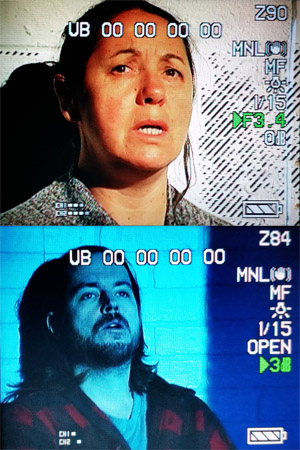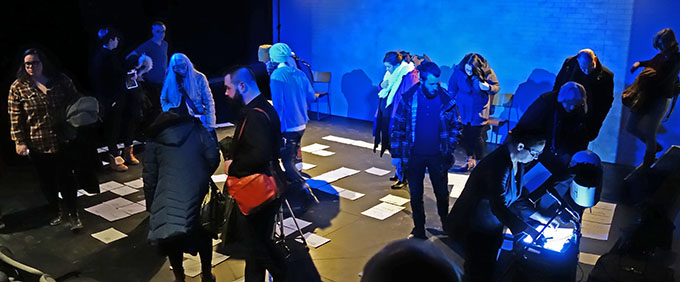What I learned from What I learned from a decade of fear in 2016 (notes from the Director)
January 27, 2016
I was wondering, after the election in the fall, whether this show was being outpaced by events – could it still be relevant? There is real hope in the air about Canada as a country that is recovering its conscience. But despite that sense of hope, the statistics of the damage caused by war and crisis thinking continue to accumulate, and the hunger to solve problems with fists and bombs and prisons seems to be the new international normal. Unfortunately, this show may be more relevant than ever. After six years of thinking about how we “make sense” of people and actions that we don’t understand (especially in times of stress), it is clear to us that we need a public debate about the simple truths around how we treat other people, other nations – and even the “familiar strangers” we see but don’t relate to in our own communities: those of different races, with different abilities, from different cultures, with different priorities or incomes…
Unfortunately, this show may be more relevant than ever. After six years of thinking about how we “make sense” of people and actions that we don’t understand (especially in times of stress), it is clear to us that we need a public debate about the simple truths around how we treat other people, other nations – and even the “familiar strangers” we see but don’t relate to in our own communities: those of different races, with different abilities, from different cultures, with different priorities or incomes…
Here are some brief thoughts following our recent run at the Progress Festival at the Theatre Centre, January 2016. I couldn’t write a proper sentence for several days after, but the sense of circularity in the arguments coming at us from the US primaries and the ongoing debates about Syria, ISIL, and Islamophobia in Europe hit me with an eerie familiarity.
1.0 A short method for how to fix the world by getting to know people:
How to get to know them: See them. Speak to them, and listen. Question them. Interrogate them. Observe them. Play with them. Follow them. Analyze them. Research them. Confound them. Deconstruct them. Sympathize with them. Watch their reactions to what you do.
And from all of this, in the end reconstruct something, in your mind, that you call ‘them.’
Did it work? Revise as necessary.
Repeat (up to 7 Billion times).
2.0 Formula for nurturing a hostile curiosity:
the question as opening
the question as complement
the question as relationship
the question as accusation
the question as weapon
the question as conclusion
— Trevor Schwellnus, Jan. 2016
